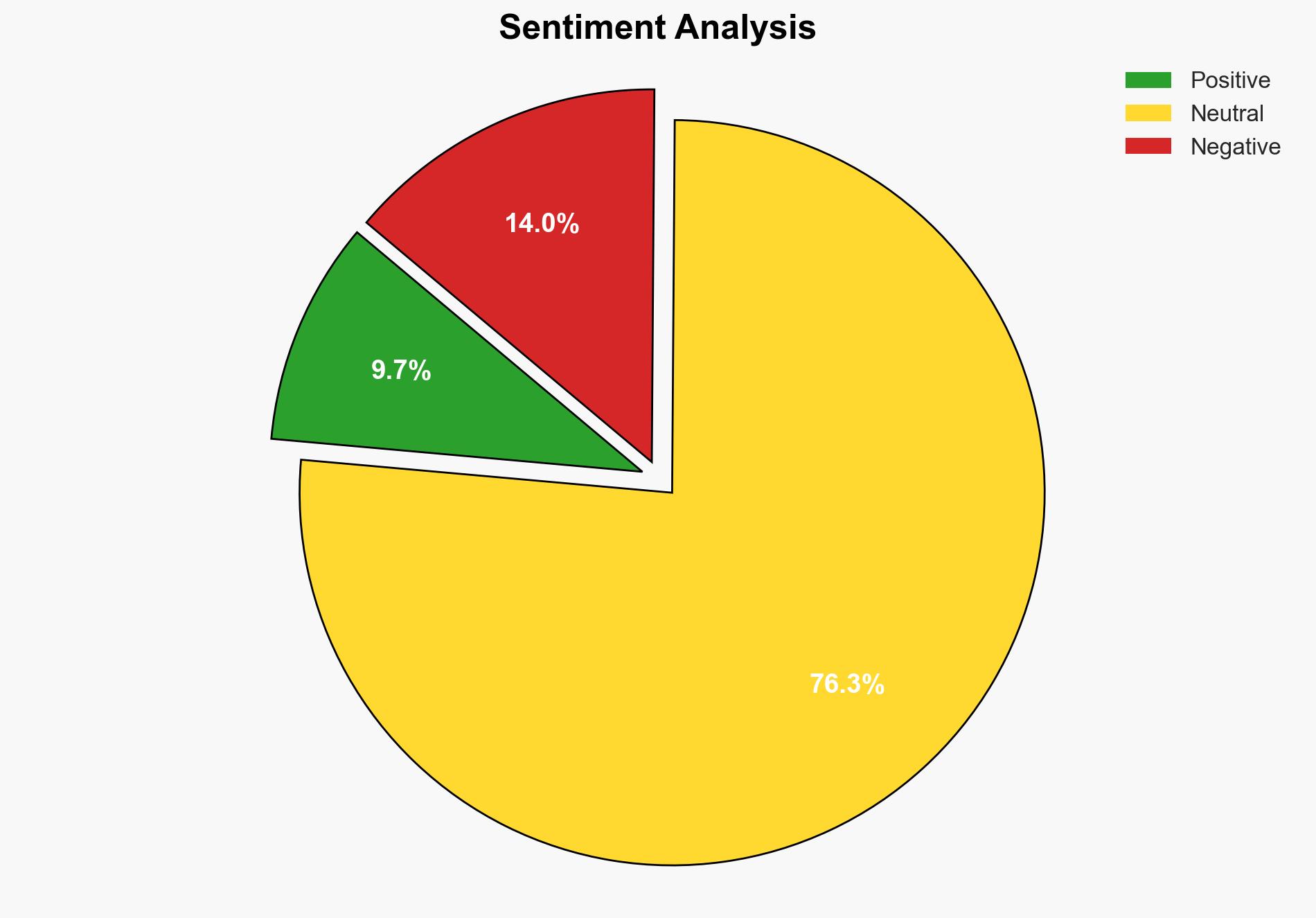Iran Palestinians’ forced displacement continuation of genocide through political means – Globalsecurity.org
Published on: 2025-03-07
Intelligence Report: Iran Palestinians’ Forced Displacement Continuation of Genocide Through Political Means – Globalsecurity.org
1. BLUF (Bottom Line Up Front)
The Iranian government has accused Israel of continuing a genocide against Palestinians through forced displacement, particularly in Gaza. This accusation comes amid heightened tensions and potential geopolitical shifts in the region. The Iranian spokesperson, Esmaeil Baghaei, highlighted the need for an emergency meeting of the Organization of Islamic Cooperation (OIC) to address these concerns. The situation poses significant risks to regional stability and international relations.
2. Detailed Analysis
The following structured analytic techniques have been applied for this analysis:
SWOT Analysis
Strengths: Regional solidarity among Muslim countries could strengthen collective diplomatic efforts.
Weaknesses: Internal divisions within the Palestinian territories may weaken their negotiating position.
Opportunities: Increased international attention could lead to renewed peace talks.
Threats: Escalation of military actions could destabilize neighboring countries.
Cross-Impact Matrix
The forced displacement of Palestinians could lead to increased refugee flows into neighboring countries such as Jordan and Egypt, potentially straining their resources and affecting regional security dynamics.
Scenario Generation
Best-Case Scenario: Diplomatic interventions lead to a peaceful resolution and halt forced displacements.
Worst-Case Scenario: Continued displacement results in widespread regional conflict, drawing in multiple countries.
Most Likely Scenario: Ongoing tensions with periodic escalations and international diplomatic efforts to manage the crisis.
3. Implications and Strategic Risks
The continuation of forced displacement in Gaza poses significant risks to regional stability. It could lead to increased military confrontations, humanitarian crises, and strained international relations. The situation may also impact global economic interests, particularly in energy markets, due to potential disruptions in the region.
4. Recommendations and Outlook
Recommendations:
- Encourage diplomatic engagement through international bodies to address the humanitarian crisis.
- Support initiatives aimed at fostering dialogue between conflicting parties.
- Enhance monitoring of regional developments to anticipate and mitigate potential security threats.
Outlook:
Best-Case: Successful diplomatic interventions lead to a de-escalation of tensions and a halt to forced displacements.
Worst-Case: Escalation into broader regional conflict, affecting global stability and economic interests.
Most Likely: Continued diplomatic efforts with intermittent escalations, requiring ongoing international attention and intervention.
5. Key Individuals and Entities
The report mentions significant individuals and organizations involved in the situation:
- Esmaeil Baghaei
- Organization of Islamic Cooperation (OIC)
- United Nations Relief and Works Agency for Palestine Refugees in the Near East (UNRWA)




